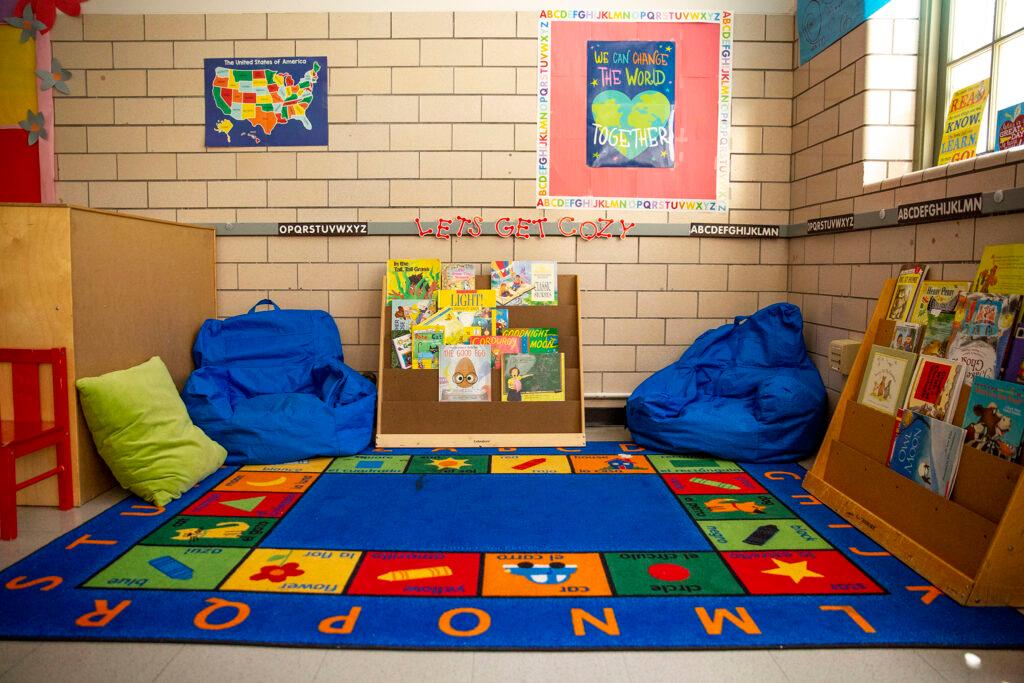
A rule allowing religious preschools to prioritize children from their congregations has been recommended to be repealed by the committee that guides the operations of Colorado’s popular universal preschool program.
The state-funded UPK program was designed to be inclusive. That means it’s not just preschools in public schools. It includes private child care centers, home-based providers and faith-based programs. Under the UPK rules, religious preschools could give preference for seats to members of their congregation.
But a lawsuit by two Catholic preschools argued they couldn’t participate in the program because the contract’s nondiscrimination rules based on sexual orientation and gender identity conflicted with their religious beliefs. They wouldn’t be allowed to bar children from LGBTQ+ families.
It is unclear what the rule change, which needs to be approved by Lisa Roy, executive director of the Department of Early Childhood, means for the lawsuit. Calls to the department were not immediately returned.
A June court ruling effectively laid bare a conflict in the rules and Colorado law.
Judge John L. Kane ruled that to give preference based upon a particular religion — only available to faith-based providers — clashed with the state’s nondiscrimination clause. The ruling said that because the law allows religious preschools to give preference to members of their congregations, it follows that they can also determine whether to accept families based on a child or family’s religion.
It ruled the state “created an unworkable scheme that breaches the appropriate limits on state power” and violates the free exercise clause of the First Amendment.
“Defendants cannot have it both ways ... They cannot contend that the congregation preference does not apply to conduct that is necessarily religious, while also arguing that the preference ‘is available only to religious providers,’” he wrote.
Dawn O’Dean, director of the UPK program, said during a rule hearing Thursday the congregational preference was never intended to conflict with state law. It was supposed to be another tool to make sure the preschool program had providers from all backgrounds. But the judge’s ruling found the congregational preference problematic.
“(The rule) effectively permits distinctions based on religious affiliation and thus creates an exception to the religious affiliation provision when the (preschool) statute does not permit the department to create any exceptions from those requirements,” said O’Dean.
The rule council voted 8 to 1 to approve recommending a repeal of the congregational preference, which if approved by Roy, would take effect next year.
Tim Derocher, policy legislative and legal director for the Colorado Department of Early Childhood said other enrollment preferences would still be allowed, such as for siblings or children of employees or for a child to stay with a provider where they are already enrolled.
“We're a new department, new program and we set up all of these programmatic preferences to be as inclusive as possible,” he said. “While the (congregational) preference was never designed in a manner to allow a provider to circumvent the equal opportunity clause, the judge's ruling found that it effectively does.”
He said state law ultimately takes precedence over rules governing the UPK program.
While the congregational preference would no longer be an option on the state’s online application form, one of the preferences under the rules includes children who are part of a specific community or who have a specific relationship to the provider.
One rule council member asked if parents who are members of a church and want to enroll their four-year-old in the church program would be able to do so without barriers. Derocher responded they would be with the preferences available.
Meanwhile, the Catholic preschools’ lawsuit is ongoing. Though the judge’s ruling allowed Catholic preschools to reserve seats for children in the congregation, it said they couldn’t discriminate on the basis of sexual orientation or gender identity. For the parish preschools, that meant they couldn’t operate consistent with their principles and exclude children from LGBTQ families. They filed an appeal in July.
Nick Reaves, counsel at the Becket Fund for Religious Liberty, which represented the Catholic parishes, said the congregational preference was a feature that allowed many religious preschools to join UPK.
“But it also only further confirms what we already knew — unfortunately, the state seems to think it’s more important to try to make sure Catholic preschools can’t participate than it is to make sure that every Colorado family has access to the school that best meets their needs,” he said in a statement.
“We’re confident the courts will recognize this targeted action for what it is and uphold the right of Catholic schools and families to participate in [universal preschool] consistent with their beliefs.”









